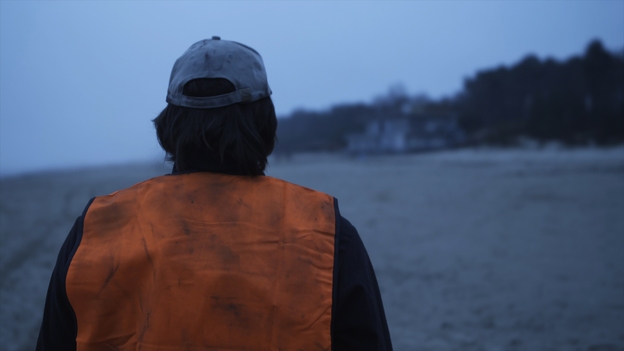David Holzman's Diary is one of those micro-budgeted nano-films that nevertheless captured its specific moment - and, within it, something universal - so brilliantly that it endures several decades on. Jim McBride's pseudo-documentary purports to be the cine-journal of twentysomething Upper West Side film buff Holzman (L.M. Kit Carson), shot over one week using a portable Éclair camera and Nagra tape deck - the tools of the cinéma vérité movement - with the goal of "exposing himself" for art. David compiles then-topical sights (recording, for example, everything he watches on television one night, from Batman to Star Trek), sounds (the pop-radio soundtrack is interrupted by news reports of inner-city unrest, and votes being taken at the UN) and interviews with authentic late-60s NYC heads and faces, such as the sexually liberated transsexual neighbour whose philosophy is "A cock or two a day never hurt anyone... I take 'em like vitamins."
The narrative throughline is David's attempt to win back the model girlfriend who'd walked out on him after he started filming her naked in bed, but the gist of the film can be derived from a long monologue given to David's best pal, who invokes the uncertainty principle in warning that the David Holzman our budding auteur hero puts on screen may not be a David Holzman he (or anybody else) particularly likes. At the time of its release, audiences may well have identified with David as a voice of his generation, an increasingly confused, angry and impotent Warholian wannabe. Nowadays, however, he can't help but resemble a precursor of the Big Brother generation, both exhibitionist (chattily extolling the virtues of masturbation on camera) and voyeur (spying on his female neighbours) and unravelling in front of our very eyes: following women off subway trains, crank-calling single neighbours, and eventually ending up alone in his room, confessing "This isn't going how I intended it to be." McBride, who went on to work with Richard Gere on the remake of Breathless and direct the Jerry Lee Lewis biopic Great Balls of Fire, has a particular genius for skewering male narcissism: what starts out as a hip pop-cultural item becomes the cautionary tale of a man whose only real relationship is with his machines, those inanimate objects that take, take, take while giving nothing back in return.
David Holzman's Diary is available on DVD through Second Run.




